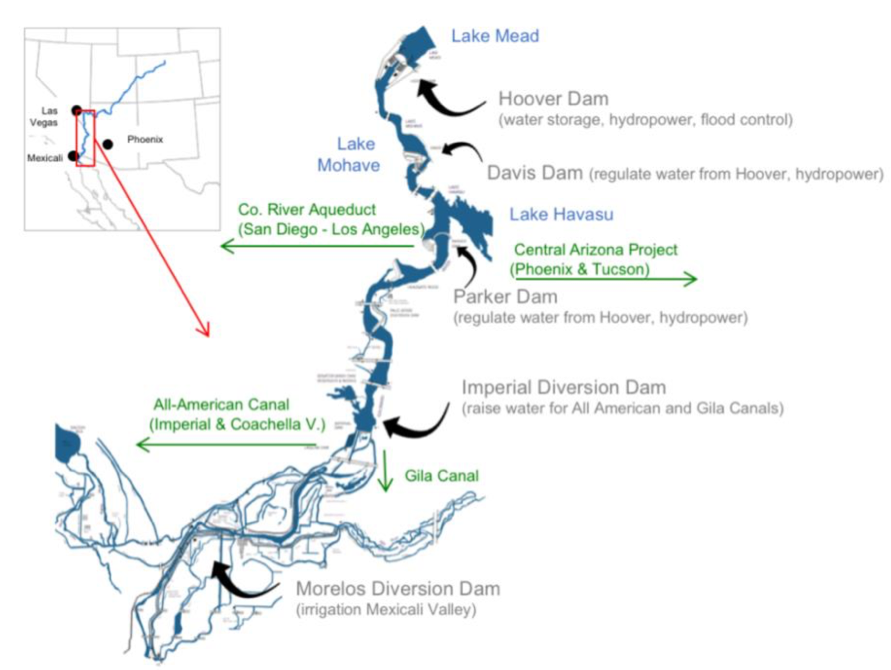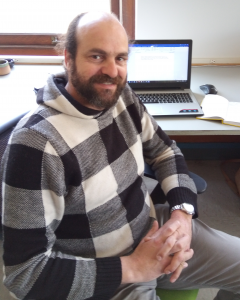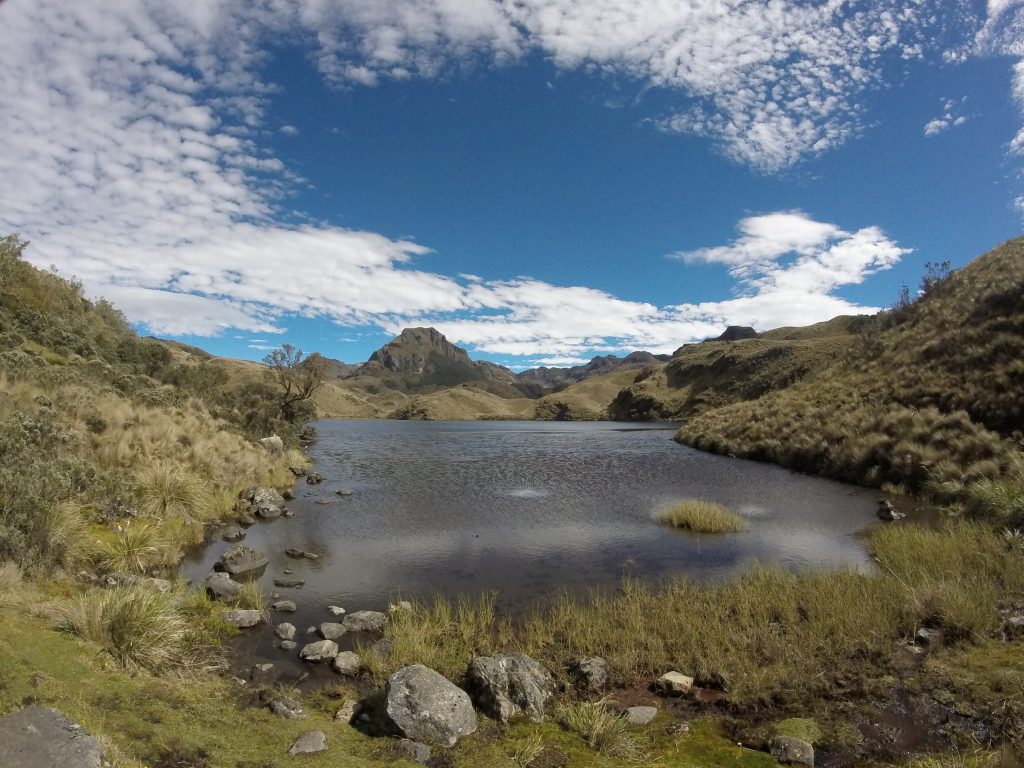We’re really excited to welcome two new postdocs in the lab: Drs. Travis Apgar & Robert Fournier. They will work on different aspects of our program at Pinnacles National Park, focused on the effects of seasonal and supraseasonal drying on stream invertebrate communities. Robert is joining us from the University of Arkansas, and Travis from UC Santa Cruz. Welcome to Berkeley!
Uncategorized
Biodiversity benefits of restoring wetlands
Hi! I am Zhenhua Sun, visiting Ph.D. student in the lab. During my stay I have been gathering data on water quality and macroinvertebrate community composition in ponds and wetlands across the globe. Our study areas and collaborators span Argentina, Canada, France, Ireland, Norway, Slovakia, Sweden, Switzerland, UK, and the US!
In particular, we are asking whether natural, agricultural, and highway ponds differ in the contributions they make to landscape-scale biodiversity. In turn, this could in stormwater pond design, so that these elements of green infrastructure maximize ecosystem benefits.
Stay tuned for a forthcoming paper on the topic!

Updates – Sept & Oct 2019
- The lab is full steam ahead this Fall 2019! We started scouting sites for our CADFW Delta restoring wetlands project, we are building traps for the field experiment at Pinnacles, and we are making progress in our data-driven projects (river-reservoir dynamics, CA drought, created wetlands, metacommunity stability).
- Guillermo and Kyle presented at the California chapter of the Society for Freshwater Science (CalSFS) – California Bioassessment Workgroup (CABW) meeting at UC Davis.
- Albert coauthored a review in Science, with SESYNC director Margaret Palmer, on the importance of flow regime for river ecosystem restoration. Check it out here! [see associated interview].
- The lab hosted Sebastien Rauch and Ekaterina Sokolova, who visited us from Chalmers University of Technology, Sweden.
- The lab also hosted John Sabo, director of Future H2O (Arizona State University), with whom we continue to collaborate on spectral methods and hydrologic regime shifts.
- Albert joined the editorial board of Conservation Letters, a leading journal on interdisciplinary conservation science.
More soon! 🙂
TEDx talk by Jessie Moravek
Jessie Moravek, Ph.D. student in the lab, gave a TEDx talk at the TEDxFulbrightGlasgow event last June, on hydropower development and its impacts on ecosystems and people. The talk is online now. Check it out here!
The lab is growing!
- We welcome Jessie Moravek and Megan Pagliaro to the Ruhi Lab! Jessie is interested in studying the impacts of hydropower dams, and potential for mitigating them via reoperation and removal; and will be co-advised by Justin Brashares. Megan has been putting together an exciting research project on wetland restoration trajectories in the San Francisco Bay. Read more about them and their inspiring interests!
- We also look forward to hosting Tadeu Siqueira, Brazilian sabbatical visitor who received a FAPESP grant to research metacommunity dynamics under environmental fluctuations; as well as Ph.D. student Zhenhua Sun, who is visiting this Fall from Sweden to study biodiversity benefits of stormwater ponds. Welcome all!
We got funding to study restoring wetlands!
The Ruhi Lab will receive funding from the California Department of Fish and Wildlife, for the project ‘Reconnecting Delta food webs: evaluating the influence of tidal marsh restoration on energy flow and prey availability for native fishes’. This Fall we will start a 3-year project combining analyses of community composition, stable isotopes, and sensor time-series data, in collaboration with USGS and ICF, via State Water Contractors. More soon!
Modeling river-reservoir dynamics
I am Tongbi Tu, a new postdoc in the lab. I am working on a SESYNC Pursuit to study causal pathways and feedbacks within complex water management systems. This project integrates ecology, hydrology, and water law. The interdisciplinary team is composed of Sankar Arumugam (NCSU), Xiaoli Dong (UC Davis), Caitlin Dyckman (Clemson Univ.), Ted Grantham (UC Berkeley), Lars Olson (Univ. of Maryland), Benjamin Ruddell (Northern Arizona Univ.), Nicola Ulibarri (UC Irvine), and Albert Ruhi (UC Berkeley).
In this working group we will apply physically-based and time-series models to investigate how reservoirs can help provide engineered resilience to socio-environmental systems–especially during periods of drought. We will use a variety of approaches to detect direct and indirect causal pathways and feedbacks between hydrologic conditions, human uses, and downstream ecological outcomes in the Lower Colorado River basin. A better understanding of the complex dynamics of water systems can help advance sustainable freshwater management–a critical need in the face of increasing competition for scarce freshwater resources.

Drought and invertebrate community change in Californian streams
Hi there! My name is Guillermo de Mendoza and I am a postdoctoral researcher in the lab. Together with David Herbst (UC Santa Cruz) we are studying how stream invertebrate communities are changing over time and across the state of California. We are using a dataset collected via the Surface Water Ambient Monitoring Program (SWAMP). Our question concerns patterns of distance-decay of similarity–that is, dissimilarity in invertebrate communities across spatial and environmental distances.

DDS relationships are typically controlled by environmental gradients, dispersal barriers, and ecological drift. Here we are asking whether DDS can vary over time as well–in response to fluctuating hydrologic conditions. This research will show how drought influences spatial patterns of stream invertebrates (‘who is where’), and will help us further understand how freshwater biodiversity may respond to the multi-year droughts that characterize California’s hydroclimate.
A palaeocological perspective into resilience
Understanding how freshwater ecosystems respond to environmental change requires knowing whether recent changes are within the bounds of natural variation or if these systems are, instead, entering new states.
I am Xavier Benito-Granell, an aquatic ecologist and new SESYNC Postdoc Fellow working on questions that revolve around the long-term resilience of diatom communities and their ability to capture regime shifts in lakes. My project, co-developed with my external mentor Albert Ruhi, aims at identifying abrupt transitions in palaeoenvironmental records of high-elevation Andean lakes.
We are applying time-series methods on a unique combination of diatom community data, biophysical data (pollen and sediment geochemistry), and human data (archaeological records). This historical perspective combines data at decadal to millennial scales, and allows asking whether early-warning signals precede regime shifts–something that would be useful to try identify lakes that may be on the verge of a critical transition. We hope this work will advance our understanding of the long-term dynamics and trajectories of high-altitude lakes, and of their responses to ongoing anthropogenic and environmental change.

Paramo landscape around Lake Patoquinuas, Cajas National Park (Ecuador)
It’s been a busy couple of weeks!
The past two weeks have been rather busy. First, we hosted Chris Trisos, Postdoc Fellow at SESYNC, to continue working on a paper on Modern Portfolio Theory applied to conservation science.
We then welcomed Jordi-Rene Mor, visiting graduate student from the Catalan Institute for Water Research (ICRA) and the University of Barcelona. Jordi will be joining us for 4 months, to work on stable isotope data from a number of Catalan Mediterranean rivers affected by drought and wastewater effluents. Welcome, Jordi!
Last but not least, we discussed novel flow regimes and submitted a grant proposal to the California Sea Grant (Special Focus Awards). If we get funding we will be doing some exciting food-web research in reference and restored wetlands at the South Bay Salt Pond Restoration Project.
More soon!
